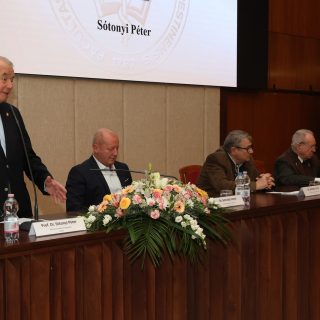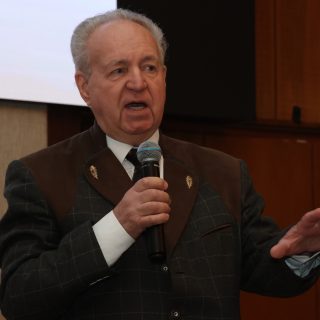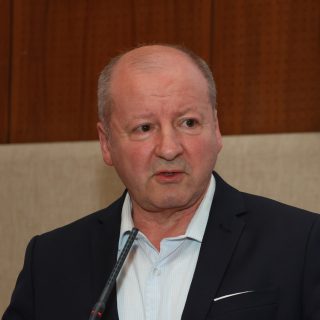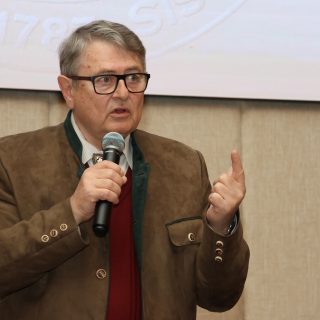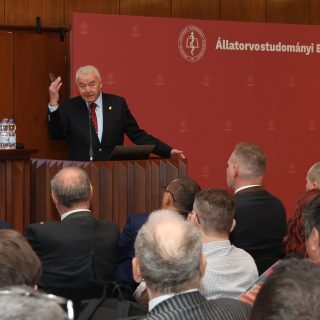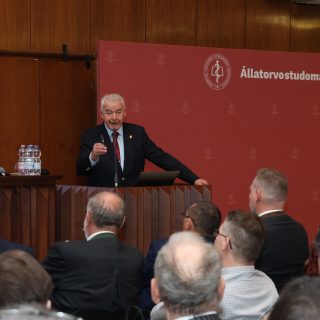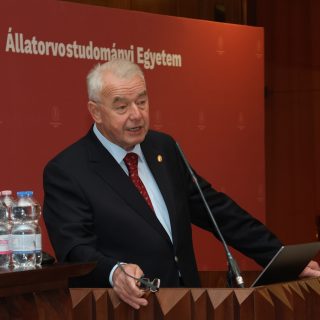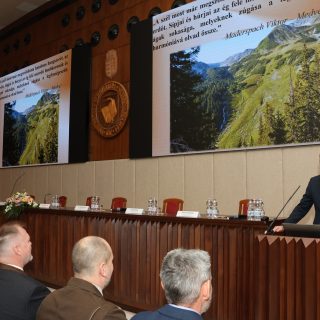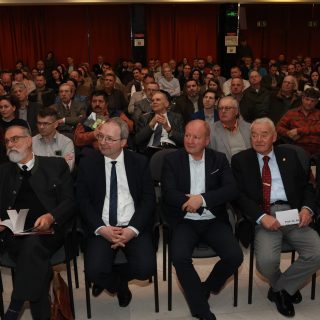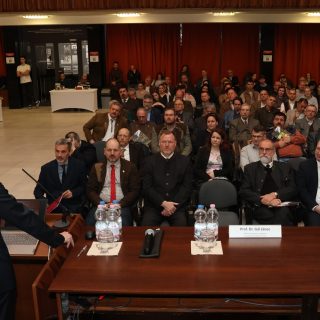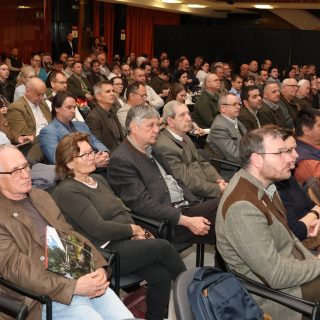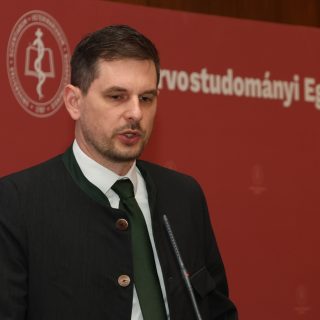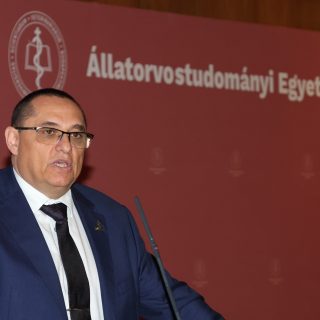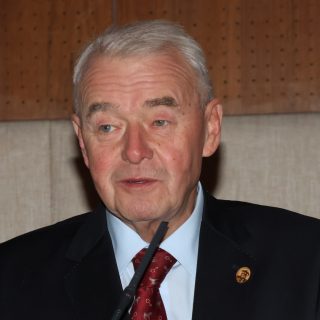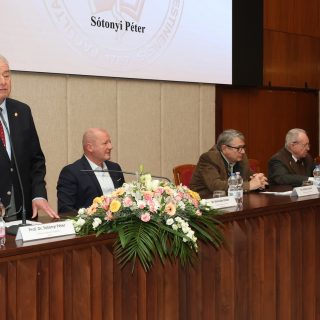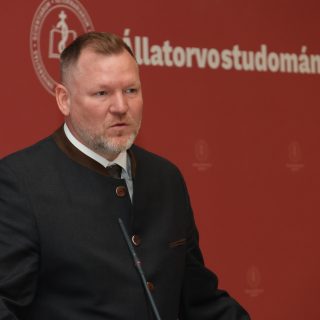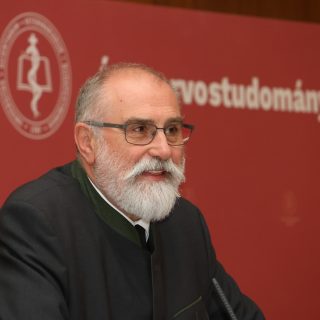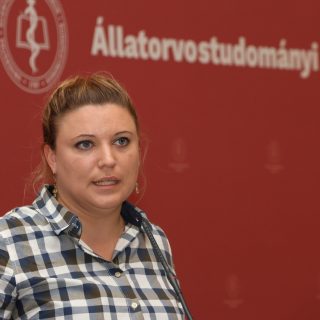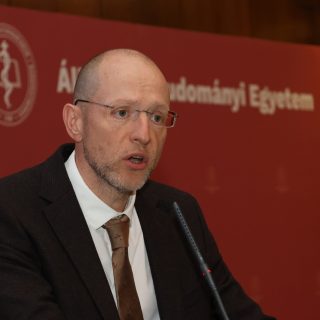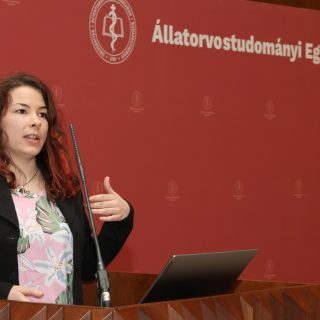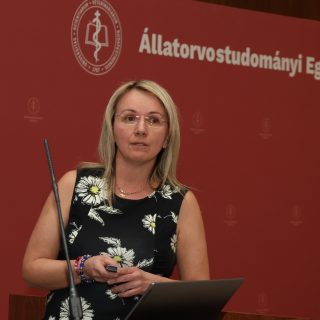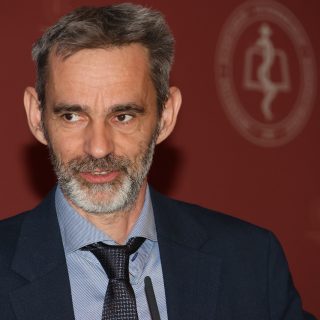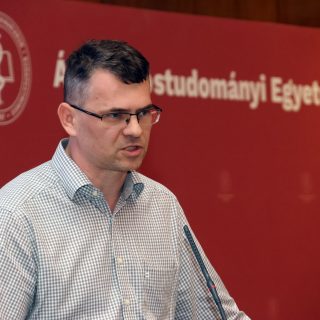On April 3, the University of Veterinary Medicine Budapest hosted the twelfth “Current Issues in Wildlife Health and Game Management in Hungary” conference. As in previous years, the event once again demonstrated that Hungarian wildlife management and wildlife health are up-to-date and grounded in world-class scientific and professional foundations.
Throughout the day, representatives of science, veterinary health, nature conservation, and hunting culture gathered at the same table to share the latest challenges, achievements, and proposed solutions—with each other and the audience. The conference sent a clear message to professionals and interested laypeople: hunting is not merely a passion but a form of responsible thinking for the balance of nature.
Prof. Dr. Péter Sótonyi, Rector of the University of Veterinary Medicine Budapest, commemorated the 150th anniversary of the birth of Viktor Maderspach, a heroic cavalry captain and hunting writer who fought for his homeland and his beloved Transylvania from the outbreak of World War I until his last day.
“Viktor Maderspach is a role model for youth. Everything young people imagine a hero can be found in him. A primeval man. All muscle, strength, courage. An engineer, thus practical. At home in the wilderness, confronting danger. And at home in the wide world, everywhere. Driven by his restless, ever-active spirit—from one continent to another. A primeval man who speaks seven languages. But above all his talents, what made him truly exceptional was his burning Hungarian soul,” he quoted Nándor Urmánczy’s words from 1930.
Dr. István Simicskó, former Minister of Defence, added:
“Prof. Dr. Péter Sótonyi, Rector of the University of Veterinary Medicine Budapest, organizes this conference on current issues in wildlife health and game management with unwavering commitment each year. Wild animals are among Hungary’s unique treasures. Yet, due to their lifestyle, they are often exposed to the whims of nature and require special attention and care. Preserving the world of creation is a key responsibility, and meaningful dialogue with experts in the field is vital.”
The event’s chair was Prof. Dr. János Gál, Head of the Department of Exotic Animal, Wildlife, Aquatic Animal and Bee Health at the university and a long-standing key figure in wildlife health education in Hungary. In his presentation, he shared recent findings and pathogens related to acute enteritis affecting pheasant populations, which can impact both game management and breeding.
The professional presentations focused on veterinary health risks. African swine fever, avian influenza, foot-and-mouth disease, and peste des petits ruminants (PPR) all pose significant threats to wildlife populations—and through them, to the entire ecosystem. Dr. Imre Nemes, President of NÉBIH (National Food Chain Safety Office), provided updates on the current situation and prevention strategies from the authorities’ perspective.
Sándor Fehér, President of the Budapest and Pest County Regional Organization of the Hungarian National Hunting Chamber, emphasized:
“For our regional organization, this conference is of utmost importance. Our members receive information from the most credible sources on the most pressing issues in wildlife health—today, it’s not an exaggeration to call them problems. The presentations also touch on topics in game management and hunting culture, broadening the already diverse audience base. The event significantly enhances the professional competence of both professional and recreational hunters in attendance.”
Practical topics were also addressed, including regulation of fallow deer populations, operating conditions for game collection points, enclosed game keeping, and the legal responsibilities surrounding wildlife-vehicle collisions. It was highlighted that scientific studies, genetic testing, and new legal frameworks all aim to promote sustainable, fair, and well-regulated game management.
Researchers from the Doctoral School also presented their work in the overlapping fields of game management and wildlife health. The role of students and young researchers was emphasized as particularly important in shaping the future.
As in previous years, the program was driven by the intention to bring nature and hunting closer to society. Those who attended gained a clearer understanding that modern hunting is no longer solely about weapons and trophies—it is more about responsibility, knowledge, and respect for nature.
And as Viktor Maderspach once wrote:
“Now the wind had awakened its mighty instrument, the forest. Its pipes and strings are the multitude of treetops and branches reaching skyward, whose roaring blends into the most majestic harmony.”

